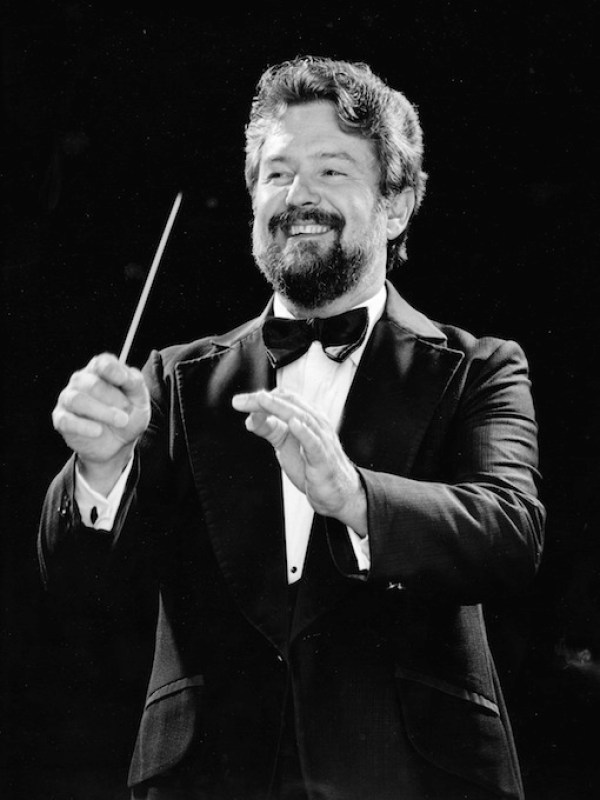Newton Wayland
Newton Wayland, son of Helen Hart and L.C. Newton Wayland, was born in Santa Barbara at St. Francis Hospital on November 5, 1940. He died at Cottage Hospital on September 5. That could read as just a move across town, but there was nothing staid about his living. Even as a boy he was drawn to hugeness, his first passion being steam trains, real ones (the city had a roundhouse in those years).
Then came music. By the time he was in his teens, already an accomplished pianist, he had formed both a jazz combo and a chamber group. After graduating from Santa Barbara High School, he made a stab at Harvard, but found himself more engaged with the jazz band he started there, and he soon transferred to the New England Conservatory of Music. He earned a presence as pianist, arranger, and composer before graduating with high honors and bachelor and master of music degrees. He became first-call keyboardist for the Boston Symphony Orchestra, was musical director at the Charles Playhouse, and arranger and keyboardist for Arthur Fiedler and the Boston Pops. His audition for successorship to Fiedler was lauded, and though John Williams was chosen, Wayland’s career as a conductor then soared.
For most of his professional life he was a regular guest conductor for over 20 orchestras in the US and Canada, principal pops conductor of the Houston, Denver, South Bend, Oakland, and Vancouver B.C symphonies. He made his European debut leading the Orchestre National de Lyon in his Gershwin program, and his New York debut with Peter Schickele in the P.D.Q. Bach Christmas concerts at Carnegie Hall. He became Rockefeller Artist-in-Residence at WGBH-TV in Boston, music director of the PBS Emmy Award-winning children’s show “ZOOM!”, conductor and more for the engaging Adventures in Music program. He also wrote music for Nova, conducted opera for the Associate Artists Opera Company in Boston and the Castle Hill Summer Festival in Ipswich, MA, and was music director, arranger, and pianist for the off-Broadway show ‘ Berlin to Broadway with Kurt Weill”.
Throughout he was in great demand as an arranger. It could be said that he was one of the first masters of crossover, partly by necessity, as quality pops repertoire was at that time relatively limited. It was in his eclectic nature to want to connect classical, jazz, broadway, and pop-influenced scores. One of his many recordings was an album of his arrangements, played by what he called the Wayland Quartet, titled Jazz Loves Bach. His offbeat programming has been called free-associative, though the seeming spontaneity belied the work he put into making the arrangements interesting for the orchestra and entertaining for everyone else, including himself. Audiences were delighted with his lively and insightful commentaries delivered from the podium, glimpses of his almost encyclopedic musical knowledge.
Eventually Santa Barbara drew him back. When not traveling to conduct the sometimes 70 concerts a year, he also tracked, in person, the last routes of the steam trains in the Americas. One of his later projects was an enactment, with a soprano ( a former fellow student at NEC), of the Brahms and Clara Schumann letters and music, ” The Brahms Experience”, playing venues as far-flung as the Canterbury Music Festival in England and our Music Academy of the West. Even in retirement he continued to be the ebullient Renaissance man he had always been. His passion for the theater included an intense study of Shakespeare’s plays. History, philosophy, and geology were only a few of the other subjects he studied in depth. His analyses of Bach’s work were both enlightening and moving to the circle of friends he shared them with. After four years of immersion in the Bach Cantatas he felt he was beginning to understand them. On being hospitalized in what became his last months, he decided to turn to Bach’s organ works, gathering more scores, CDs, and books about him.
He leaves two sisters and their families: Lisa Cabryl and her children William Runnette, Sean Runnette and his wife Anna Cunningham, and Deirdre Runnette and her partner Ingrid Anderson; and Constance Brown, her husband Julius, and their children Janelle and Julius Anthony and his fiancée Cara Henry.
At Newton’s request there will be no memorial service. Contributions in his name may be made to the ACLU, Planned Parenthood, and the League of Women Voters. More locally, two libraries and their staffs were essential to him. Gifts to the UC Santa Barbara Music Library may be made with a personal check designated to the UC Santa Barbara Foundation (please indicate on the check memo that the gift is for the Music Library in the memory of Newton Wayland, and send to UCSB Library, University of California, Santa Barbara, CA 93106-9010). He may also be honored by gifts to Friends of the Montecito Library.
Gratitude and admiration go to the Cottage Hospital medical ICU doctors and medical staff.

